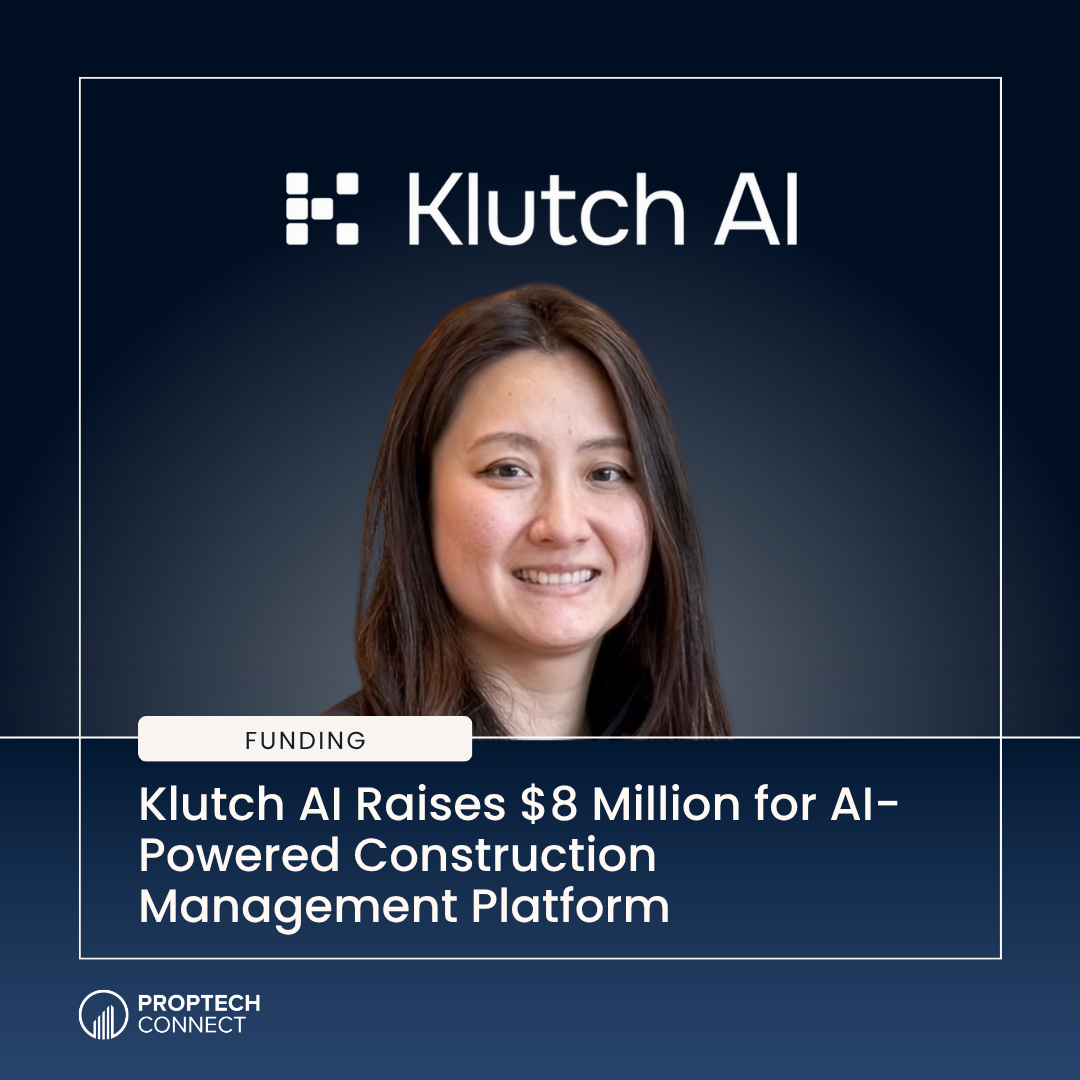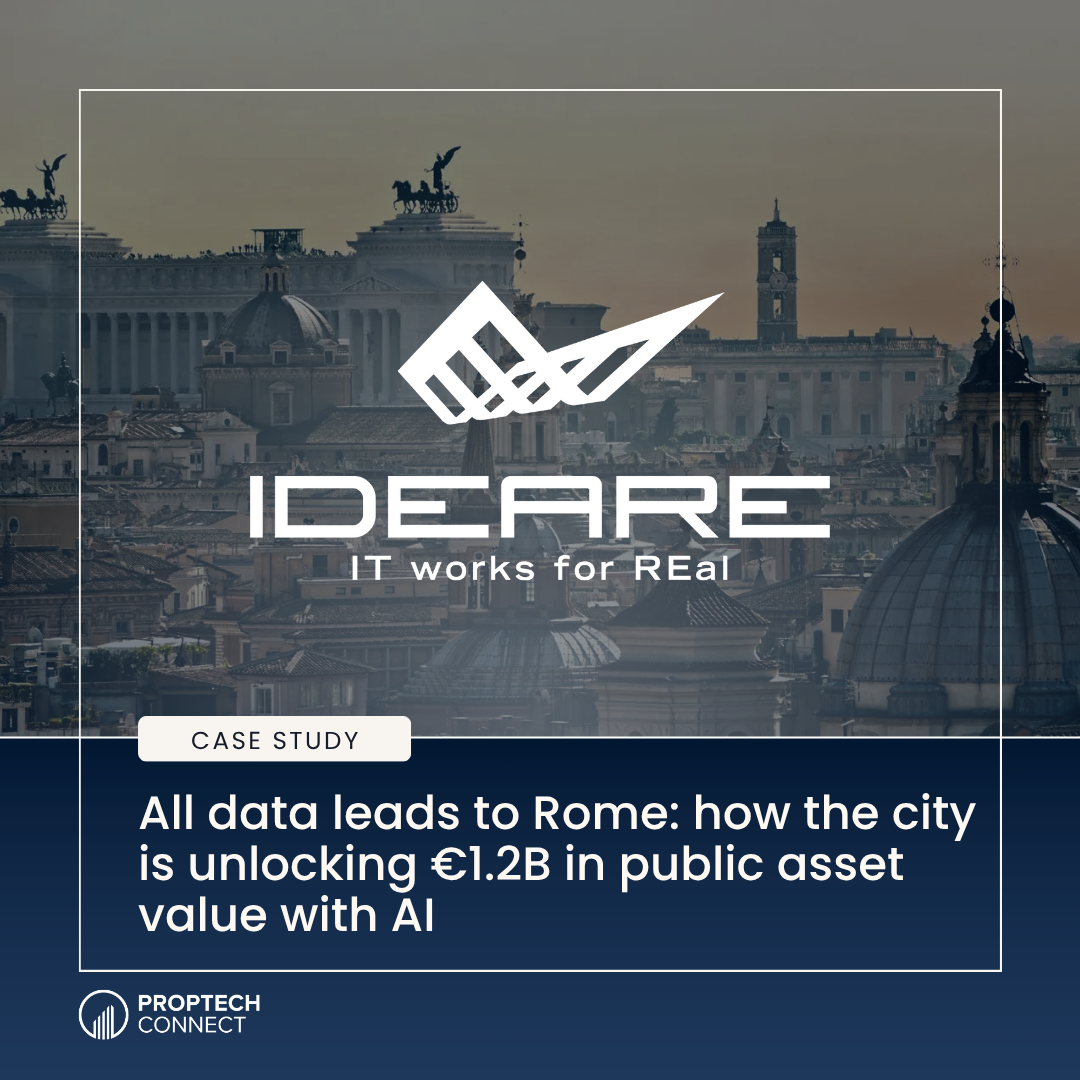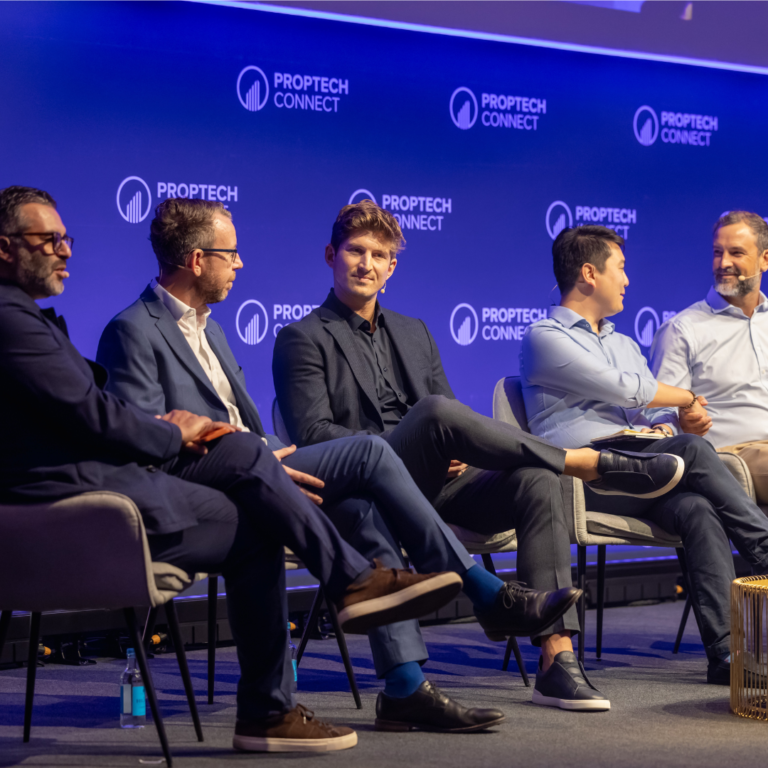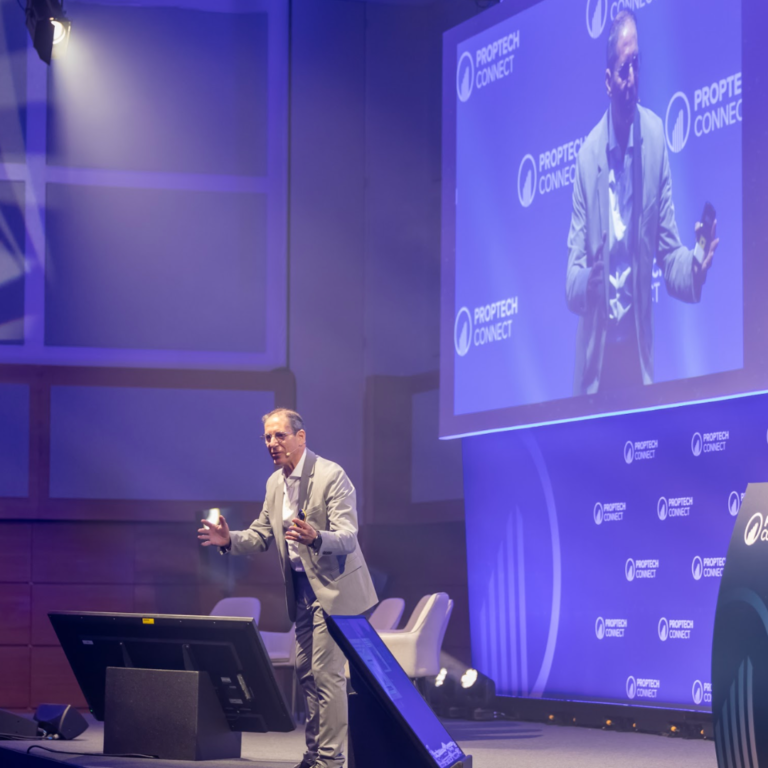
Shared 01 July, 2025
PropTech Connect » News & Insights » News

According to McKinsey’s State of AI in 2024 report, 65% of global companies already use generative AI in at least one business function and 72% in at least one operational area. But in real estate, AI adoption remains fragmented. Many organisations still rely on outdated processes, disconnected systems, and manual spreadsheets, slowing decision-making and limiting the value of their portfolios.
One city pushing to change this is Rome. Managing public real estate in a city like Rome with 2,000 years of history is an enormous challenge. Roma Capitale owns one of the world’s most complex public portfolios, made up of tens of thousands of buildings, roads, parks, and cultural sites. Many of these assets are still tracked across multiple disconnected databases, some even on paper, creating gaps in information, inefficiencies, and missed opportunities for economic and social value.
Roma Capitale’s public property stock includes more than 65,000 buildings and 15,000 roads and public spaces. Yet an estimated 30% of this data was mismatched or missing due to incomplete digitisation, fragmented cataloguing, and legacy systems. The cost of this misalignment is significant:
The city needed a solution that could centralise and modernise its property data, improve transparency, and enable faster, data-driven decisions, while keeping citizens and communities at the centre.
In partnership with Ideare S.p.A., Roma Capitale launched the Atlas Project, built on the REFTREE platform – a solution managing over two million assets across Italy.
Atlas integrates with Rome’s accounting and cadastral systems and leverages cloud technologies for scalability and security. The project brings together AI, advanced data modelling (HBIM), and automation to digitise thousands of records and build a centralised, dynamic inventory of the city’s assets.
AI is no longer an experimental option, it is a strategic enabler with the potential to:
Through the city’s Geoportal, citizens can now explore public property searching by district, address, or category with intuitive maps and individual property sheets. A new My ERP app will allow tenants to manage payments and maintenance requests digitally, improving services for residents.
€1.2 billion in hidden value has been identified already, with opportunities to unlock further gains. Administrative inefficiencies are being reduced, with early results showing up to 70–80% faster processing times for internal reviews. More importantly, the project is enabling:
The Atlas Project is not just modernising Rome’s real estate management, it is laying the groundwork for a smarter, more transparent city. With its scalable approach, the project offers a powerful example for other municipalities in Italy and beyond.
Join our community of 200,000+ real estate leaders and get weekly insights and updates with our newsletter.









*Offer ends on Friday, 7th February.
